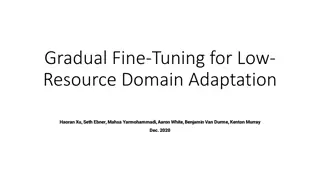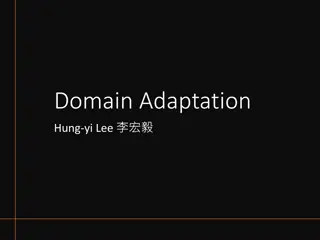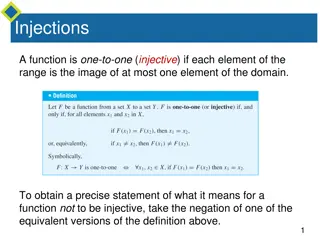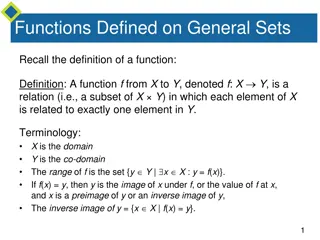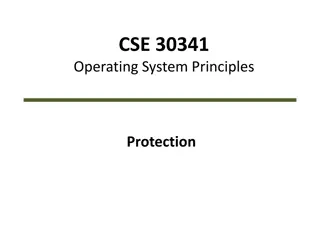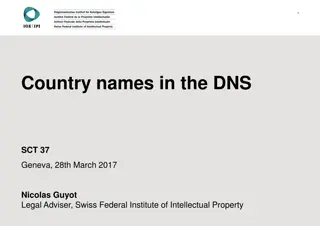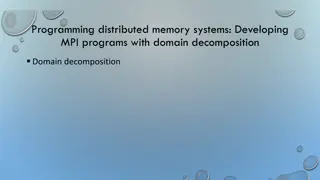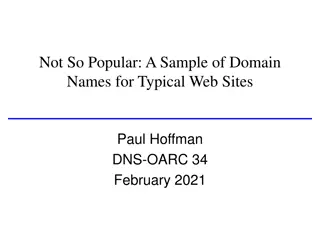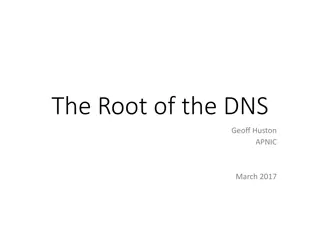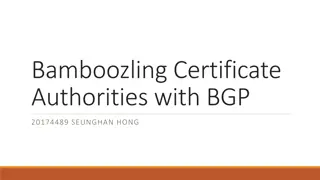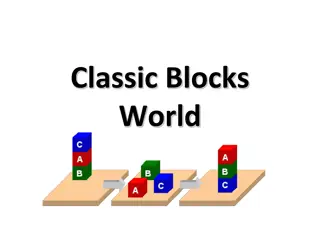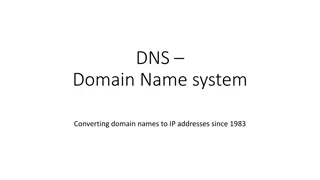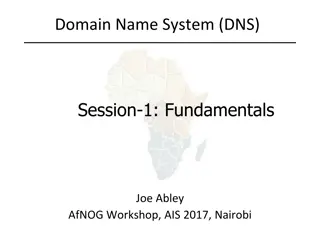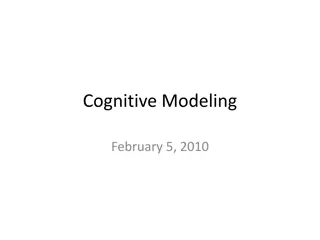Cognitive Load Classification with 2D-CNN Model in Mental Arithmetic Task
Cognitive load is crucial in assessing mental effort in tasks. This paper discusses using EEG signals and a 2D-CNN model to classify cognitive load during mental arithmetic tasks, aiming to optimize performance. EEG signals help evaluate mental workload, although they can be sensitive to noise. The
0 views • 19 slides
Brain Mineral Deposition and Cognitive Decline Study
Investigating the progression pattern of brain mineral deposition as a differential indicator of cognitive decline in individuals with varying cognitive statuses from normal to Alzheimer's disease. The study aims to develop improved imaging techniques and specific cognitive-relevant atlases to under
4 views • 24 slides
Understanding the Cognitive Assessment System (CAS2) Theory and Applications
The Cognitive Assessment System (CAS2), developed by Dr. Jane Yeomans, is a comprehensive tool for assessing cognitive processes in children aged 5 to 18. Unlike traditional IQ tests, CAS2 focuses on areas like Planning, Attention, Simultaneous, and Successive processing. It requires Level 2 qualifi
1 views • 29 slides
Understanding Cognitive Behavioral Therapy (CBT) by Dr. James Ikonomopoulos
Explore the foundations and application of Cognitive Behavioral Therapy (CBT) through the work of Dr. James Ikonomopoulos. Uncover the connection between thoughts, feelings, and behaviors, learn cognitive and behavioral interventions for children and adults, and delve into the cognitive model of the
0 views • 64 slides
Gradual Fine-Tuning for Low-Resource Domain Adaptation: Methods and Experiments
This study presents the effectiveness of gradual fine-tuning in low-resource domain adaptation, highlighting the benefits of gradually easing a model towards the target domain rather than abrupt shifts. Inspired by curriculum learning, the approach involves training the model on a mix of out-of-doma
0 views • 17 slides
Understanding Cognitive Testing in Aging: A Vital Assessment Tool
Cognitive testing plays a crucial role in assessing cognitive abilities and distinguishing normal aging from disease states in older adults. This program, a partnership between OneWorld and UNMC's Geriatrics Workforce Enhancement Program, highlights the importance of cognitive testing, its objective
0 views • 17 slides
Introduction to Cognitive Behavioral Therapy (CBT) for Beginners
Delve into the origins, principles, and applications of Cognitive Behavioral Therapy (CBT) through an exploration of its history, theory, and practical skills. Learn how CBT targets cognitive distortions and behaviors to enhance mental health and develop coping strategies. Discover the fundamental a
0 views • 23 slides
Understanding Domain Adaptation in Machine Learning
Domain adaptation in machine learning involves transferring knowledge from one domain to another. It addresses the challenge of different data distributions in training and testing sets, leading to improved model performance. Techniques like domain adversarial training and transfer learning play a k
0 views • 16 slides
Understanding Injective and Surjective Functions
Injective functions map elements from the domain to the range uniquely, while surjective functions ensure every element in the co-domain has a corresponding element in the domain. The negation of injective means finding x1 and x2 in the domain with the same function value but not equal, whereas for
1 views • 26 slides
Theories of Human Development in Psychomotor Domain
The psychomotor domain involves the development of muscle skills associated with mental processes. Psychomotor development progresses through cognitive, associative, and autonomic stages, where individuals learn to perform new skills that involve both the body and mind. In the cognitive stage, one n
0 views • 12 slides
Understanding Functions: Definitions and Arrow Diagrams
Recall the definition of a function, where each element in the domain is related to exactly one element in the co-domain. Arrow diagrams can visually represent functions from finite sets X to Y. In this example, a function is defined from X = {a, b, c} to Y = {1, 2, 3, 4} using arrow diagrams, showc
8 views • 28 slides
Understanding Operating System Protection Principles
Explore the goals, principles, and implementation of protection in computer systems, including access matrix, domain structure, and capability-based systems. Learn how protection domains and access control are used to specify resource access, and delve into the concept of least privilege and dynamic
4 views • 21 slides
Understanding Human-Computer Interaction and Cognitive Learning Theories
Human-Computer Interaction (HCI) focuses on how people interact with computers, while theories like Sweller's Cognitive Load Theory and Mayer's Cognitive Theory of Multimedia Learning explain how individuals process information. These theories emphasize optimizing learning by managing cognitive load
4 views • 8 slides
Cognitive Stimulation Therapy in Post-Acute Care: A Pilot Study
Cognitive Stimulation Therapy (CST) is an evidence-based group intervention designed for individuals with mild to moderate cognitive impairment. It aims to enhance cognitive functioning through various activities such as executive functioning tasks, multi-sensory stimulation, and reminiscence work.
0 views • 9 slides
Predictive Performance of CSF A1-42 and Tau on Cognitive Decline and Dementia Progression
Analysis conducted at the Perelman School of Medicine, University of Pennsylvania, evaluated the predictive performance of cerebrospinal fluid markers A1-42, t-tau, and p-tau181 on cognitive decline and progression to dementia. The study included 2401 ADNI1/GO/2 CSF samples from individuals across d
0 views • 19 slides
Cognitive Behavioral Therapy for Psychosis: Concepts and Applications
Explore the foundational principles of Cognitive Behavioral Therapy (CBT) for psychosis, emphasizing how thoughts influence feelings and behaviors. Gain insights into the cognitive-behavioral model of paranoia and learn about the main tenets of CBTp. Discover how CBTp can effectively address psychot
0 views • 63 slides
Early Childhood Language Learning and Bilingualism
Early childhood is a critical period for language acquisition and the development of bilingualism. Exposure to multiple languages from a young age has significant cognitive benefits. Bilingualism is a common phenomenon worldwide, with many individuals speaking more than one language. The cognitive i
0 views • 109 slides
Insights from Cognitive and Field Testing on Hearing Domain at the 10th Washington Group Meeting
Delving into the comprehensive assessment of the hearing domain, this document highlights the various aspects of hearing including perception, challenges, aids, and impact on daily activities. It showcases the findings and conclusions drawn from cognitive testing, focusing on questions on difficulty
0 views • 18 slides
Brain Health Messaging for Health Education: Promoting Cognitive Well-being
Evidence-based programs for older adults focus on managing health conditions that are risk factors for cognitive decline, such as diabetes, smoking, and heart disease. By incorporating cognitive health messages into promotions, individuals are encouraged to address these risk factors early to suppor
0 views • 5 slides
Understanding America Study: Cognitive Functioning Measures
The Understanding America Study (UAS) focuses on developing web-based cognitive functioning measures, including tests for fluid abilities, verbal skills, executive function, and processing speed. Utilizing data from about 9,000 panelists, tests like the Stop and Go Switch task are administered onlin
0 views • 26 slides
Country Names in the Domain Name System (DNS)
The Domain Name System (DNS) plays a crucial role in attributing top-level and second-level domains to country names. This system is global and managed by ICANN, not national offices, allowing for unique attribution to one person. Examples of country names registered as second-level domains are prov
0 views • 7 slides
Addressing Cognitive Dysfunction in Patients with Cancer: Causes, Impact, and Treatment
Understanding cognitive dysfunction in cancer patients is crucial for improving quality of life and medical outcomes. This article explores the background, causes, screening, diagnosis, and treatment options for cancer-related cognitive impairment, emphasizing the historical perspective, prevalence,
0 views • 60 slides
Hierarchical Attention Transfer Network for Cross-domain Sentiment Classification
A study conducted by Zheng Li, Ying Wei, Yu Zhang, and Qiang Yang from the Hong Kong University of Science and Technology on utilizing a Hierarchical Attention Transfer Network for Cross-domain Sentiment Classification. The research focuses on sentiment classification testing data of books, training
0 views • 28 slides
Master Programmes in Artificial Intelligence for Human-Centric AI Careers
Explore the world of Cognitive Systems and Cognitive Programming for Human-Centric AI at the University of Cyprus. Delve into building systems that think and behave like humans, learn from experiences, and adapt to changing circumstances. Discover the ethical considerations of Cognitive Systems and
0 views • 17 slides
Developing MPI Programs with Domain Decomposition
Domain decomposition is a parallelization method used for developing MPI programs by partitioning the domain into portions and assigning them to different processes. Three common ways of partitioning are block, cyclic, and block-cyclic, each with its own communication requirements. Considerations fo
0 views • 19 slides
Understanding Cognitive Disorders in Psychiatry: A Comprehensive Overview
Cognitive disorders disrupt higher brain functions, impacting memory, attention, and decision-making abilities. This article explores the classification of cognitive disorders, focusing on delirium, a common syndrome characterized by consciousness disturbance and cognitive changes. Delirium predomin
0 views • 26 slides
Understanding Cross-Domain Policies in Web Application Security
This content explores various aspects of cross-domain policies in web applications, including the Same-Origin Policy for JavaScript and Flash, their importance in protecting user data, potential risks of bypassing these policies, and the implications of trusting Flash content to read data from exter
0 views • 64 slides
Enhancing Cognitive Flexibility for Employability
Cognitive flexibility is a crucial skill for adapting to new situations and problem-solving in today's competitive job market. This module focuses on identifying, assessing, and enhancing cognitive flexibility to nurture competitiveness and employability. Learn how to recognize the importance of cog
0 views • 24 slides
Wyoming Eminent Domain Laws - Legal Updates and Negotiations
Wyoming Legislative Changes to Eminent Domain Laws outline the requirements for exercising eminent domain, including proof of public interest and necessity, diligent negotiations, and proper notification to property owners. The laws also emphasize the importance of good faith negotiations and fair c
0 views • 9 slides
Cognitive and Behavioral Management Strategies for Traumatic Brain Injury Patients
This presentation focuses on addressing challenging cognitive, behavioral, and personality issues associated with traumatic brain injury (TBI). It outlines cognitive issues such as attention, speed of processing, learning, memory, and executive functioning. Cognitive management strategies include te
0 views • 18 slides
Understanding Domain Names for Authoritative DNS Servers
Researchers need to accurately define the types of authoritative DNS servers they sample when measuring server properties. This study focuses on collecting domain names used for web servers to assess typical domain name characteristics, highlighting the importance of accurate data for research purpo
0 views • 7 slides
Impact of Yoga on Cognitive Functioning in Aging Adults
Aging is often accompanied by a decline in cognitive functions, affecting areas such as memory, attention, and reasoning. This article explores the relationship between aging and cognitive impairment, along with various treatment options including drug therapy, dietary interventions, and cognitive e
0 views • 42 slides
Evolution of Cognitive Counseling and Aaron T. Beck's Contribution
In the historical context following World War II, a shift occurred in psychology towards cognitive counseling with the emergence of cognitive therapy by Aaron T. Beck. Beck, a psychoanalytically trained psychiatrist, challenged traditional psychoanalytic concepts and developed cognitive therapy to t
0 views • 26 slides
Understanding the Domain Name System (DNS) Structure
The Domain Name System (DNS) is a distributed data collection utilizing a delegation hierarchy to reflect the hierarchical structure of domain names. This system resolves DNS names by discovering information through iterative searches, starting from the root zone. The process involves querying serve
0 views • 25 slides
Securing Domain Control with BGP Attacks and Digital Certificates
Exploring the vulnerabilities of domain control verification in the context of BGP attacks and the role of digital certificates in ensuring security. The process of domain control verification, issuance of digital certificates by Certificate Authorities (CAs), and the significance of Public Key Infr
0 views • 53 slides
Exploring the Classic Blocks World Domain
Discover the classic blocks world domain, starting with the BW domain file and solving problems using planning domains. Learn about predicates, constants, and actions to manipulate objects effectively within the domain.
0 views • 10 slides
The Relationship Between Cognitive Flexibility and Psychological Flexibility After Acquired Brain Injury
This study explores how cognitive flexibility and psychological flexibility interact after an acquired brain injury. It examines whether individuals who exhibit cognitive inflexibility can achieve psychological flexibility, considering the impact of cognitive impairments post-injury. Cognitive flexi
0 views • 21 slides
Evolution of Domain Name System (DNS) Since 1983
Domain Name System (DNS) has played a crucial role in converting domain names to IP addresses since its inception in 1983. This system has revolutionized the way we navigate the internet, translating human-readable names into machine-readable IP addresses. The distributed and hierarchical nature of
0 views • 23 slides
Understanding Domain Name System (DNS) Fundamentals
The Domain Name System (DNS) is a crucial component of the Internet, facilitating the conversion of human-readable domain names into IP addresses. This session covers the basics of DNS, the need for names in computing, challenges of the old HOSTS.TXT system, the distributed nature of DNS, its hierar
0 views • 29 slides
Understanding Cognitive Modeling in Learning Sciences
Cognitive modeling is a key aspect of simulating human problem-solving and mental processes in computerized models. It involves the use of various types of cognitive models, such as production-rule systems and constraint-based models, to predict human behavior and performance on tasks. This field en
0 views • 83 slides




